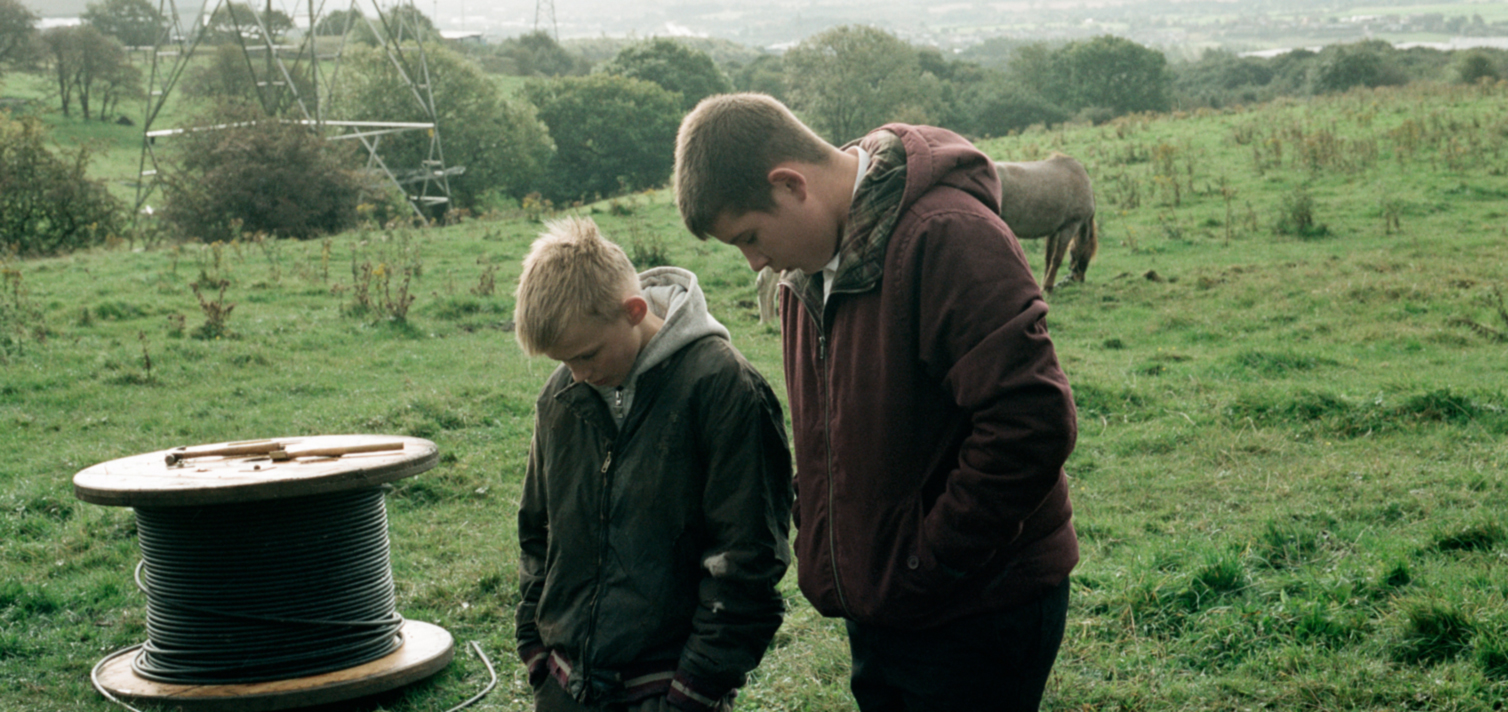
We open on a striking shot – the title set amongst the stars in the skyline, the silhouette of horses peppered across the frame, the light almost surreal in its beauty – and with it director Clio Barnard seems to signal to the viewer that this film isn’t merely a tale of social realism but something more universal, perhaps transcendent even. Whether Barnard is able to achieve that universality is up for debate; the film is filled with moving sequences of family, friendship and modern adversity yet is perhaps hampered by its fable-like structure – it telegraphs its emotional moments and in turn tends to undercut realism in favour of (very slight) melodrama.1 Based in part off of Oscar Wilde’s “story for children” of the same name, The Selfish Giant follows two young boys, ostracised for their physicality and their families financial hardships, each the other’s only true friend, who begin working for a scrap metal yard owner after they are suspended from school.
The performances of the two leads, first time actors Conner Chapman (Arbor) and Shaun Thomas (Swifty), is what carries the film. They are wholly convincing and involving in their roles and manage to enhance contextual realism whilst also fulfilling the fabled roles of curious and/or trespassing children. To further this Barnard uses perspective in an engaging way through low angles and perspective shots. Whilst the intimate camera work allows us to see the world through the eyes of these children, many of the adults end up, for better or worse, painted merely as villains. That’s not to say the cinematography as a whole is weak, rather that the thematic power is dimmed by undeveloped characters.
In his review Matt Zoller Seitz made an interesting comparison to Of Mice and Men – this film too is anchored by two male characters, one of whom brings chaos with him everywhere he goes – and the film seems steeped in literary influence. In addition to the Wilde story, the film feels overtly structured and told in chapters, though as the vignettes of power plants become less regular the film seems caught between clear telegraphed storytelling and a more freeform and naturalistic plot. When it stays naturalistic, the film is something quite special. Steeped in realism, scenes of family life hit hard, Barnard able to convey so much through the small tragedies embedded within the way in which Arbor and Swifty’s parents deal with their circumstances and their children.
The film won’t entirely be able to shake comparisons to Andrea Arnold’s 2009 feature Fish Tank or, in my mind, Paul Wright’s For Those In Peril. Each of those features are character studies in the United Kingdom dealing with family life, the notion of relationships and connection which feature impressive cinematography. Wright’s film ends up a bold stylistic exercize moreso than social realism, so Arnold’s is a more apt comparison. Fish Tank, like Barnard’s film, uses cinematography to break from convention, though Arnold uses the frame itself to both set enclosed parameters and reinforce notions of the past. In The Selfish Giant, cinematographer Mike Eley has done a very impressive job in alternating between the muted colour palette of the day-to-day and the striking vignette shots of the landscape. This juxtaposition allows us to place the human story within some greater context and concern for place and the relationship between man and nature.
As the film moves into its second half the narrative beats feel less organic and more designed, the arcs of characters almost predictable to the point in which emotional beats suffer. Its climax, whilst impressively bold, jolts us out of the realism the narrative had been building to, its suddenness not entirely convincing as a state of harsh reality. It has the potential to almost reduce the film to a danger warning rather than morality tale. The way in which the film deals with the fallout of the climax, though, is impressive. There is a truly heartbreaking montage that says so much about grief and the divide between adults and children and definitely marks Barnard as a director with a strong ability to handle emotion and tone.
The Selfish Giant is a small film that ends up saying a whole lot. It moves effortlessly between thematic concerns and character beats, though its adherence to a fairly rote narrative undercuts much of the realism it seems to strive for. Whilst the film can cry ‘fable!’ at narrative concerns, that’s not a strong enough excuse for the divide between the crushing and beautiful realism of the performances of Chapman and Thomas and the almost telegraphed plot points. That being said, Barnard has managed to make a striking leap from docu-drama in her 2010 feature The Arbor to feature fiction and her next film should be one to look out for.
Around the Staff
| Dominic Barlow |
